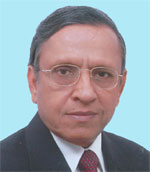 The World TB Day observed on March 24th is one of eight official global public health campaigns marked by the World Health Organization (WHO). Tuberculosis is second only to HIV/AIDS as the greatest killer worldwide due to a single infectious agent. In 2013, nine million people fell ill with TB and 1.5 million died from the disease (World TB report, WHO, 2014). Over 95% of TB deaths occur in low- and middle-income countries, and it is among the top 5 causes of death for women in the age group 15 to 44. The World TB Day observed on March 24th is one of eight official global public health campaigns marked by the World Health Organization (WHO). Tuberculosis is second only to HIV/AIDS as the greatest killer worldwide due to a single infectious agent. In 2013, nine million people fell ill with TB and 1.5 million died from the disease (World TB report, WHO, 2014). Over 95% of TB deaths occur in low- and middle-income countries, and it is among the top 5 causes of death for women in the age group 15 to 44.
Tuberculosis (TB) is caused by bacteria (Mycobacterium tuberculosis) that most often affect the lungs. TB is spread from person to person through the air. When people with lung TB cough, sneeze or spit, they propel the TB germs into the air. People ill with TB can infect up to 10-15 other people through close contact over the course of a year. Without proper treatment up to two thirds of people ill with TB will die. Tobacco use greatly increases the risk of TB disease and death. However, tuberculosis is curable and preventable.
Improper treatment of tuberculosis may lead to Multidrug-resistant tuberculosis (MDR-TB), that is a very dangerous form of TB caused by bacteria that do not respond to, at least, isoniazid and rifampicin, the two most powerful, first-line (or standard) anti-TB drugs. Again if proper treatment is adhered to, MDR-TB is also treatable and curable.
India has the highest TB burden, having 2.2 million cases out of the global incidence. Of the 9 million people a year who get sick with TB, a third of them are "missed" by health systems. It is estimated that India is home to 1 million of these “missed” cases.
In this scenario, the RNTCP of the Government of India has been making substantial headway. The Indian Red Cross Society, as auxillary to the Government of India’s is implementing the TB Programme presently in 5 states of the country i.e. Haryana, Punjab, Karnataka, Gujarat and Uttar Pradesh.
Under this project, which was launched in 2009, the IRCS volunteers in close consultation with the District TB Officers and the TB Association of India, provide support to the TB patients, meticulously helping them out with their problems in adhering to the treatment and making sure that the patient adhere to the full course of DOTS. IRCS also provides dietary protein supplements to the patients who are often from the impoverished sections of the society or suffering from alcoholism, drug abuse or HIV/AIDS.
IRCS volunteers reach family member, contacts and peers of the TB patient and to offer advise on prevention of transmission of TB. This approach significantly contributes to increased social mobilization and increased awareness and reduction of social stigma and discrimination against patients of TB.
The IRCS volunteers also undertake awareness and promotion campaigns using magic shows, posters, leaflets and billboards to take the message where it is needed the most.
The cured TB patients also in many cases become IRCS volunteers for social mobilization on TB prevention. This helps to sustain the program, getting recognition to the community members as Red Cross volunteers and contribute to reduce the stigma and discrimination associated with TB.
The Indian Red Cross has been able to reach more than 2000 Cat II patients. It is important to note that the IRCS TB project achieved 95-100 percent patient adherence to treatment in all the programme districts.
Today, I wish to thank all the volunteers who wholeheartedly give their time and energy to help patients of TB and bring a smile to their faces. I call upon more of the youth to become aware of this eminently curable disease and participate in this march against it so that India can become TB free.
Dr S P Agarwal
Secretary General,
Indian Red Cross Society
|